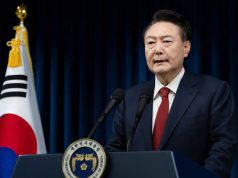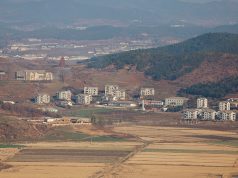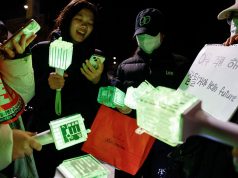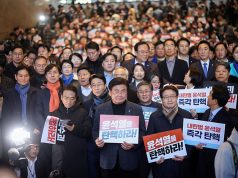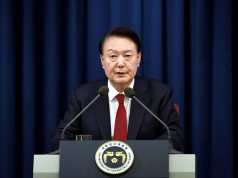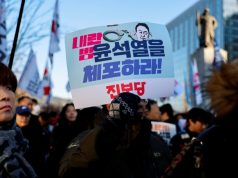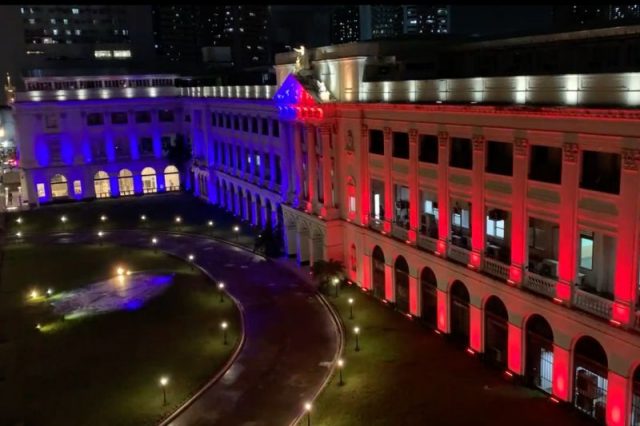
A senior history researcher expressed support for a university after its student government was called out by a former spokesperson of the anti-insurgency task force for encouraging students to wear black on September 21.
Kristoffer Pasion quote tweeted a status update of De La Salle University‘s student publication which reported that Undersecretary Lorraine Badoy of the Press Secretary Office called out the DLSU University Student Government (USG) on September 19.
“See you later, DLSU! Saludo palagi sa inyong pagtindig!” he posted on Twitter on Friday afternoon. He accompanied it with a publication material of the dialogue the university organized that day.
Pasion also included the hashtags “#ML50” and “#MartialLaw50” in his post, which refers to the 50th anniversary of the Martial Law declaration.
See you later, DLSU! Saludo palagi sa inyong pagtindig! 🫡🇵🇭 #ML50 #MartialLaw50 https://t.co/caud1wPb6h pic.twitter.com/wLPUQak0as
— Kristoffer Pasion (@indiohistorian) September 23, 2022
Pasion was one of the speakers for a dialogue titled “Kapihan ng Malalayang Lasalyano (KAMALAYAN): Paano nga ba ikwento and Martial Law?” held at the university on Friday afternoon.
This seeks to teach students how they can disseminate factual information and stories about Martial Law.
The dialogue was initiated by the DLSU Committee on National Issues and Concerns, the DLSU Libraries, and the Lasallian Justice and Peace Commission, and co-organized by the DLSU Integrated School.
Other speakers in the activity include DLSU senior high faculty member Mia Eballo and Angelica Pacifico, a development facilitator and peacemaker at the Binhi ng Kapayapaan Community.
Badoy vs USG
Previous reports said that Badoy called out the USG for encouraging students to wear black during the 50th commemoration of the Martial Law declaration on Wednesday.
According to Badoy, the student body must supposedly know how to think critically and independently as college students. She also said that they should not listen to groups that are “legal fronts” of the CPP-NPA-NDF.
CPP refers to the Communist Party of the Philippines while NPA refers to its armed wing, the New People’s Army.
NDF, meanwhile, refers to the National Democratic Front of the Philippines.
Badoy reportedly said that the student body should be careful of groups supposedly urging them to be angry toward the government.
“Aniya, wala nang dahilan pa ang mga naturang estudyante dahil sa gabundok na impormasyon na mayroon ang bansa at dahil na rin sa age of information,” a radio report said, citing the government official.
The USG was among the student bodies that previously encouraged students and members of the academic community to wear black in observance of the Martial Law declaration 50 years ago.
RELATED: ‘On Wednesday, we wear black’: Student bodies observe Martial Law’s 50th anniversary
On the day of the commemoration itself, the USG also released a statement bearing the famous battle cry “Never Forget. Never Again.”
The phrases are usually used to counter historical revisionism and attempts to sanitize narratives about Martial Law and the Marcos regime.
“Ika-50 taon matapos ang pagpapatupad ng batas militar sa Pilipinas at nais namin ibahagi ang aming pahayag. Nakikiisa kami sa mga nagsakripisyo at lumaban para sa kapayapaan ng Pilipinas. Patuloy ang pagtindig,” the statement read.
“Naninindigan kami laban sa unti-unting pagbubura sa kasaysayan sa mga imahen at datos ng karahasang dinanas ng mga Pilipino noong panahon ng Batas Militar,” it added.
“Sama-sama nating pahalagahan sa ating mga puso at ipagpatuloy ang ipinaglaban ng mga bayaning Lasalyano at Pilipino. Pangalagaan ang mga tagumpay para sa tunay na demokrasya, kalayaan at karapatang pantao na nagbibigay dangal at pag-asa bawat Pilipino. Patuloy ang pagtindig,” the student body said.
History
Martial Law was imposed from 1972 to 1981 in a bid to supposedly quell the communist insurgency and restore order, but critics said it was declared to extend late dictator Ferdinand Marcos Sr’s presidential term.
The nine-year period saw curfews being imposed, public assemblies being forbidden and the suspension of the writ of habeas corpus, a legal remedy that protects citizens from unlawful arrests and indefinite detentions.
Martial Law also saw the curtailment of civil rights and liberties, the prevalence of extrajudicial killings and unsolved disappearances, media suppression and economic recession, among others.
It was also during this period when the word “salvage,” which originally means to save, became part of the local language to denote extralegal killings.
RELATED: 31 YEARS OF AMNESIA: STORIES ON THE MYTHS THAT MADE MARCOS




